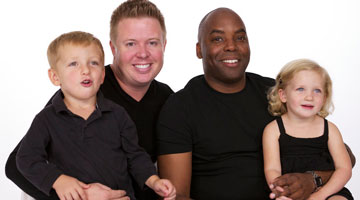The Process of Adoption
Are you ready to get started?
There are lots of different choices to be made in adoption, including which of the many types of adoption you are interested in pursuing. Broad options include domestic adoption, international adoption, and open adoption. The best way to start is to contact an agency licensed in your state to complete your adoption home study and to ask questions. Meet with multiple agencies as choosing the right agency for your family will make a big difference in your adoption journey.
Determining the eligibility to adopt is based on a process of assessment and preparation by the prospective parents, social worker, and agency. Most people are eligible to adopt, regardless of their marital status, age, income, or sexual orientation. Having a disability doesn’t automatically disqualify a prospective parent. However, for international adoption, some countries have restrictions and unique requirements for prospective families. Faith-based agencies may also have specific requirements that differ from other agencies.
Foster Adoption vs. Foster Care
The
... Read more
primary differences between foster care and adoption involve parental rights. In foster care, the parental rights for major decisions belong to the birth parents, meaning foster parents are not able to make medical, educational, or religious decisions without the consent of the birth parents. After adoption, the birth parents relinquish these rights and the adoption process have full legal rights.
Foster care is not a permanent arrangement. It is a temporary situation to provide care for the child before they return home to their birth family or join an adoptive family. Adoption is permanent. Some foster care children are adopted by their foster care parents.
Open Adoption
In open adoption, birth parents and adoptive parents share identifying information and have ongoing contact after the baby is adopted. In closed adoption, adoptive parents and birth parents share no contact information and are restricted in communicating with one another. Determining whether an open or closed adoption is best for you depends on your wants and needs as a prospective parent. Open adoptions range in nature, as well, from semi-open with limited contact after placement to fully open with frequent phone calls, emails, and visits after placement. Adoptive parents and birth parents can decide together how much openness to have based on their own comfort zones.
“When prospective adoptive parents are looking at adoption and the adoption process, a common fear that they have about having openness in particular is the role that the birth parents will play in their lives and their child's life,” says adoption expert Dr. Guylaine Hubbard Brosmer, “And what I would tell them is they are not going to agree to match with a birth mom who is an individual who they really don't like. And they also have the ability to set their profile in terms of what types of situations they are open to and ultimately, it is going to be their child that benefits from having the openness.
“Research shows that open adoption, generally, benefits children, but not in every case. Every family needs to evaluate the circumstances, get to know the birth parents,” says psychologist and Director of the Foster Care Counseling Project at Rutgers University, Dr. David Brodzinsky, “Sometimes open adoptions become more open with time, sometimes they close temporarily. The important thing to remember is, if there are bumps in the road along the way, typically, families can work them out.”
International Adoption
The requirements for international adoption vary depending on the country of the adoptive parents and the country of the child. In the United States, typically the first step in the process is choosing a licensed adoption agency or attorney. Every agency or attorney works with a different set of countries or focus on a single country. For the last decide, China, Ethiopia, India, South Korea, Ukraine, and Vietnam were the major origin countries for adopted children.
Picking an Adoption Agency
Choosing which adoption agency you want to work with is an important step that effects the rest of your adoption journey. There are good agencies and bad agencies, and there may even be a “best agency”, but there is not one agency that is best for everyone. How do you determine which agency is best for you? Start with internet research and move on to interviewing your top agencies. Once you’ve found your favorite, conduct a background check to confirm your choice.
Make sure to look at for red flags. If it sounds too good to be true, it most likely is. You can call the attorney general’s office or the Better Business Bureau in the state your agency is licensed in to see if any complaints have been filed against the agency. An adoption agency should be licensed with employees who are professional licensed social workers with experience in social work and adoption.
Home Study
The home study process is a big step towards completing the adoption. All prospective adoptive parents are required to participate in a home study conducted by a licensed social worker. Home studies are done to educate and prepare the prospective family, evaluate the capability and suitability of the prospective family, and to gather information about the prospective family to help the social worker math the family with a child whose needs they can best meet. Specific requirements and processes of home studies vary depending on the state you live in, the agency you are working with, and whether it is a domestic or international adoption.







































